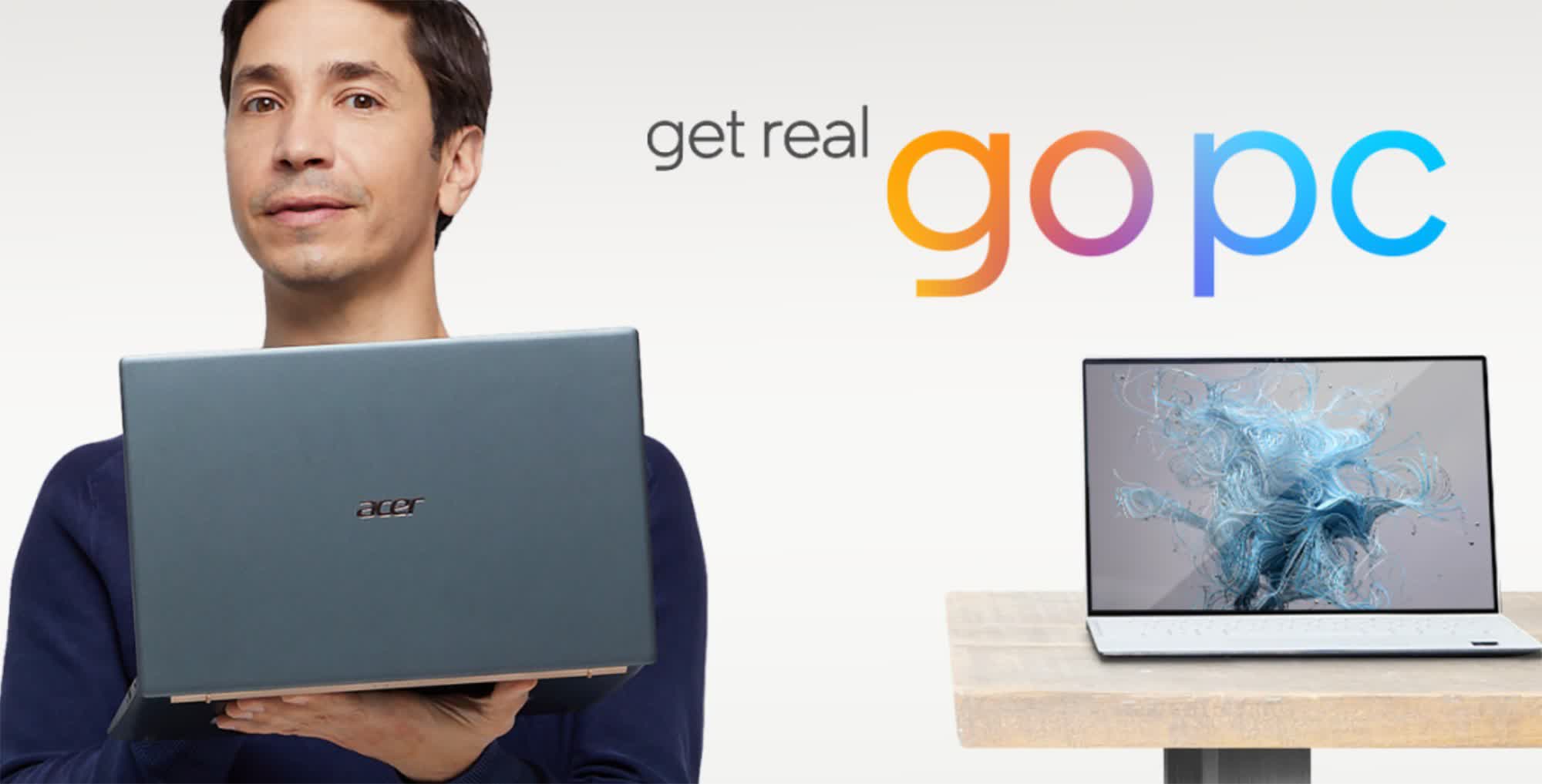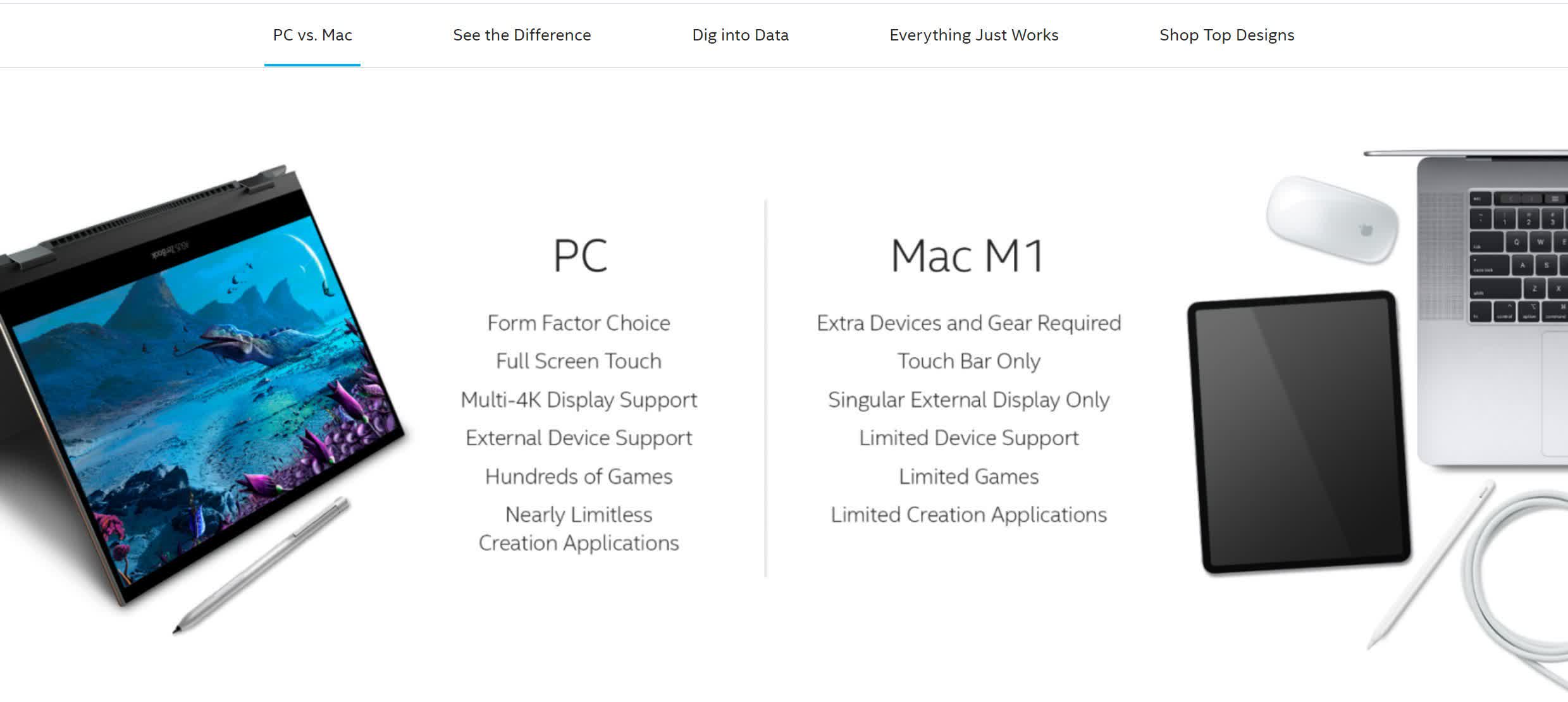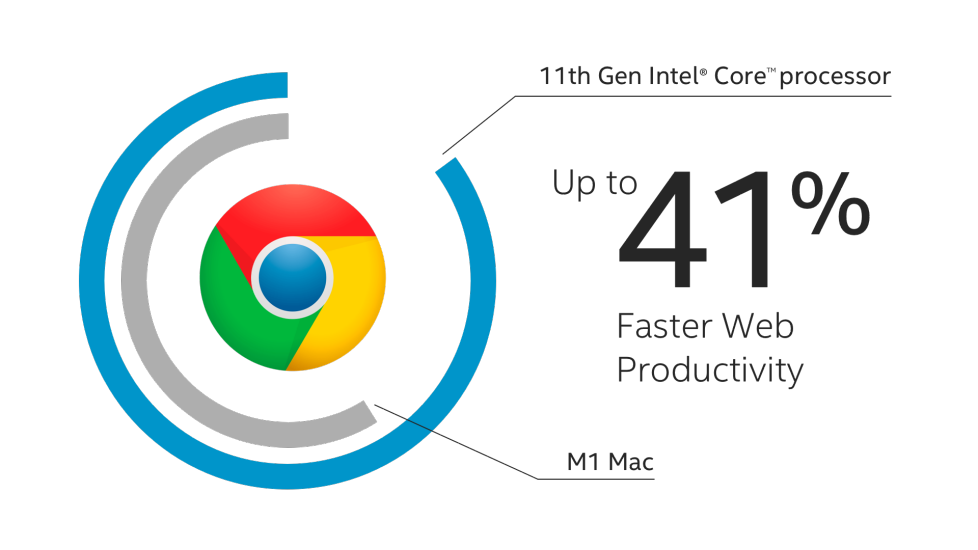What just happened? Not content with launching an ad offensive against M1 MacBooks, Intel has created a website dedicated to extolling the virtues of PC ownership while highlighting the shortcomings of Apple's latest laptops.
Intel's site is part of its Go PC campaign that began in February with a series of ads that boasted only PCs could "power a rocket launch and launch Rocket League." It recently expanded to commercials in which actor Justin Long, the "I'm a Mac" guy seen in Apple's "Get a Mac" campaign from the 2000s, mocks M1-powered Macs.
Intel's new website once again cites the PC's numerous form factors, touchscreen capabilities, multi-screen support, and hundreds of games/apps as reasons to opt for the platform, while criticizing the Macs' Touch Bar, limited device support, and few games.
Apple's Arm-based M1 Macs have been praised by critics and consumers alike for their performance and battery life. But Intel, as you would expect, claims its 11th-gen Tiger Lake processors offer "users more."
"In the real-world, a PC with an 11th Gen Intel® Core™ mobile processor offers users more and we've got real research and test results that prove it. Many Apple M1 claims don't translate to real-world usage and appear questionable. When compared to a PC with the 11th Gen Intel® Core™ mobile processor, the M1 MacBook features just don't stack up," writes Intel.
Chipzilla notes Tiger Lake's advantages when using apps such as Topaz Gigapixel AI, Adobe Premiere Pro, and Adobe Lightroom, though only Lightroom is available natively on the Apple M1. The company also claims an Acer Swift 5 with a Core i7 lasts as long as an M1 MacBook Air. The test involved both machines running Netflix with multiple browser tabs open and the brightness set at 250 nits, though the PC was using Chrome while the Mac ran Safari.
Intel also claims that PCs offer up to 41 percent faster web productivity than M1 Macs, using examples such as online photo enhancements, creating sales graphs, and exporting PDFs.
Intel's campaign is a clear response to the positive reactions the M1 MacBooks have enjoyed. Cupertino is expected to release more products featuring its own silicon this year, so expect this campaign to continue.


